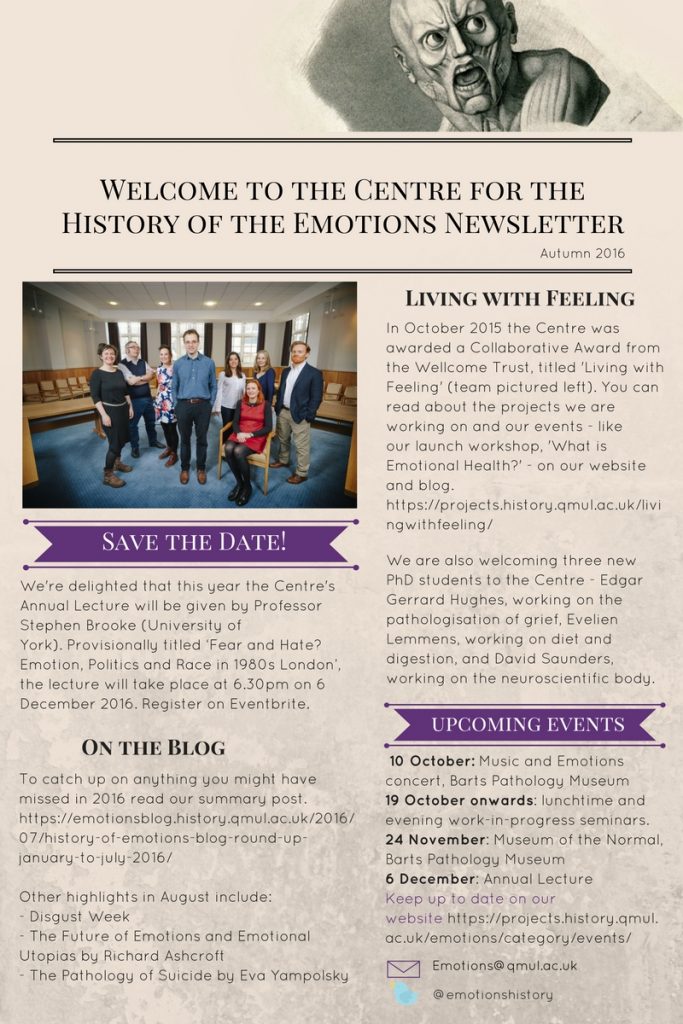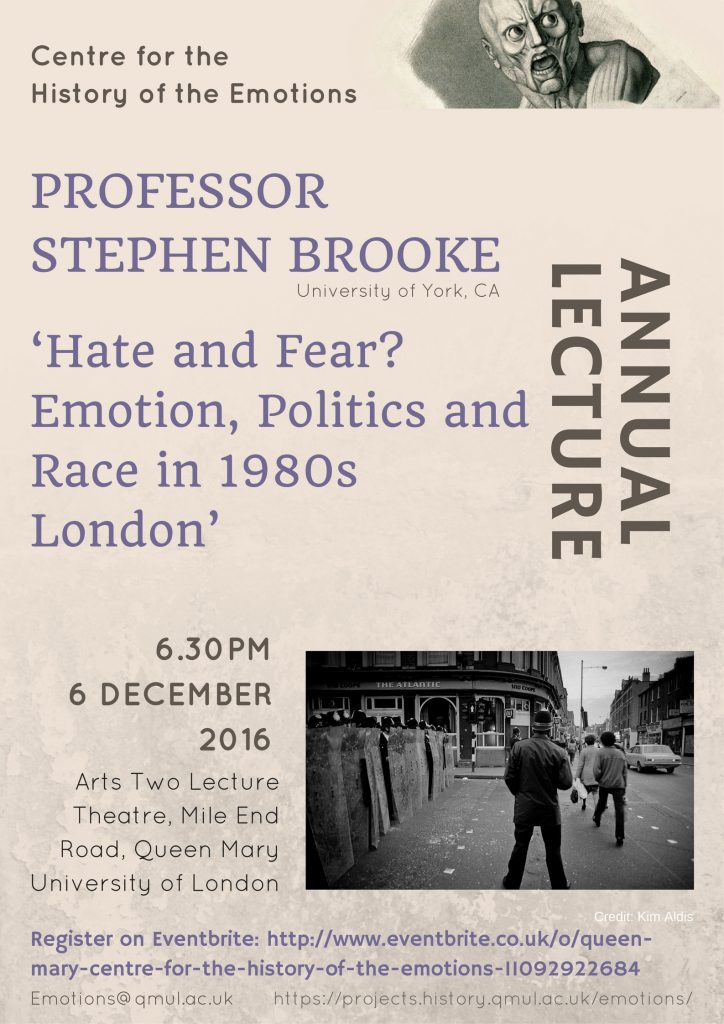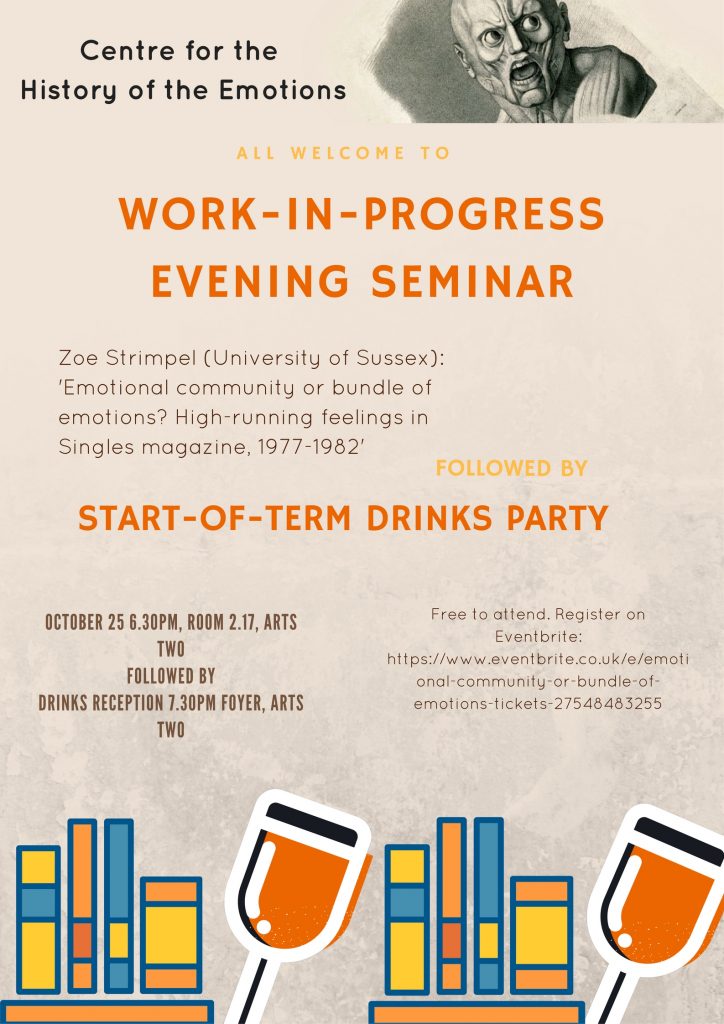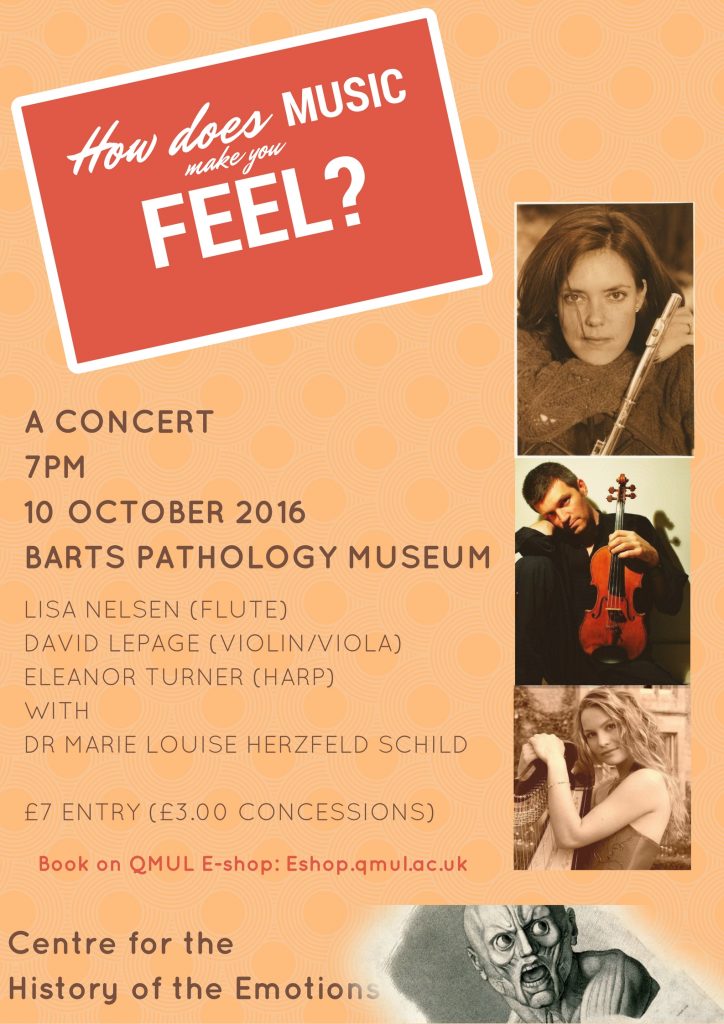Over the next few weeks we’ll be posting some news round ups. Today’s is about Dr Bonnie Evans, Wellcome Trust-funded postdoctoral fellow at the Centre.
1. Bonnie’s book, The metamorphosis of autism: a history of child development in England, is due out in February 2017 with Manchester University Press.
2. She has secured Wellcome Trust funding for a symposium on ‘International histories and sociologies of autism’. The symposium will bring together international specialists working on this topic and will be held at the Centre for the History of Emotions in April 2017.
3. She has begun a ‘Historians in Residence’ project with the Institute for Public Policy Research. The project is using historical research to inform contemporary policy concerning early years childcare provision in London. The project will result in a report for the London Mayor, Sadiq Kahn, and the Greater London Assembly, which will also be available as a published report.




